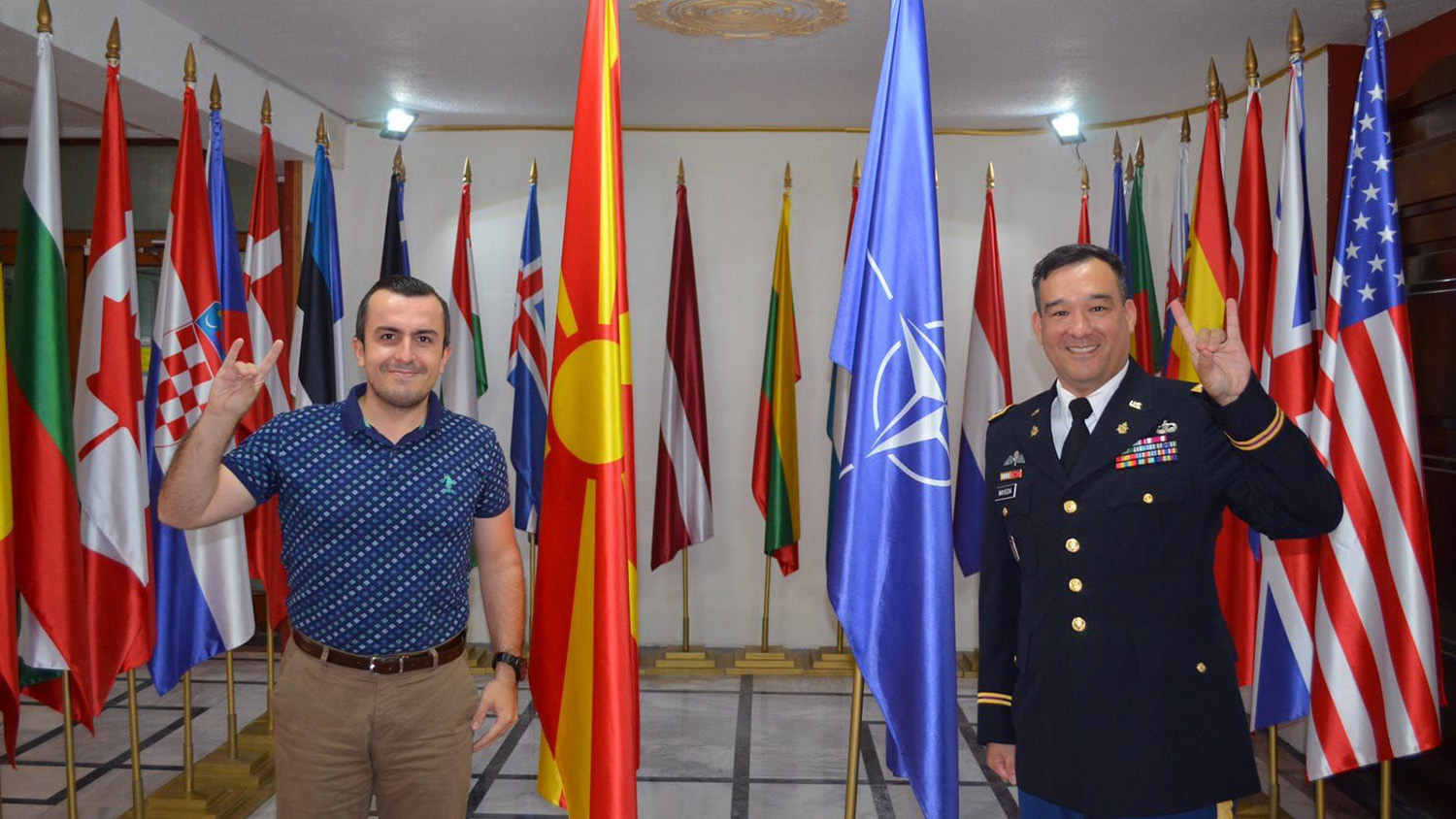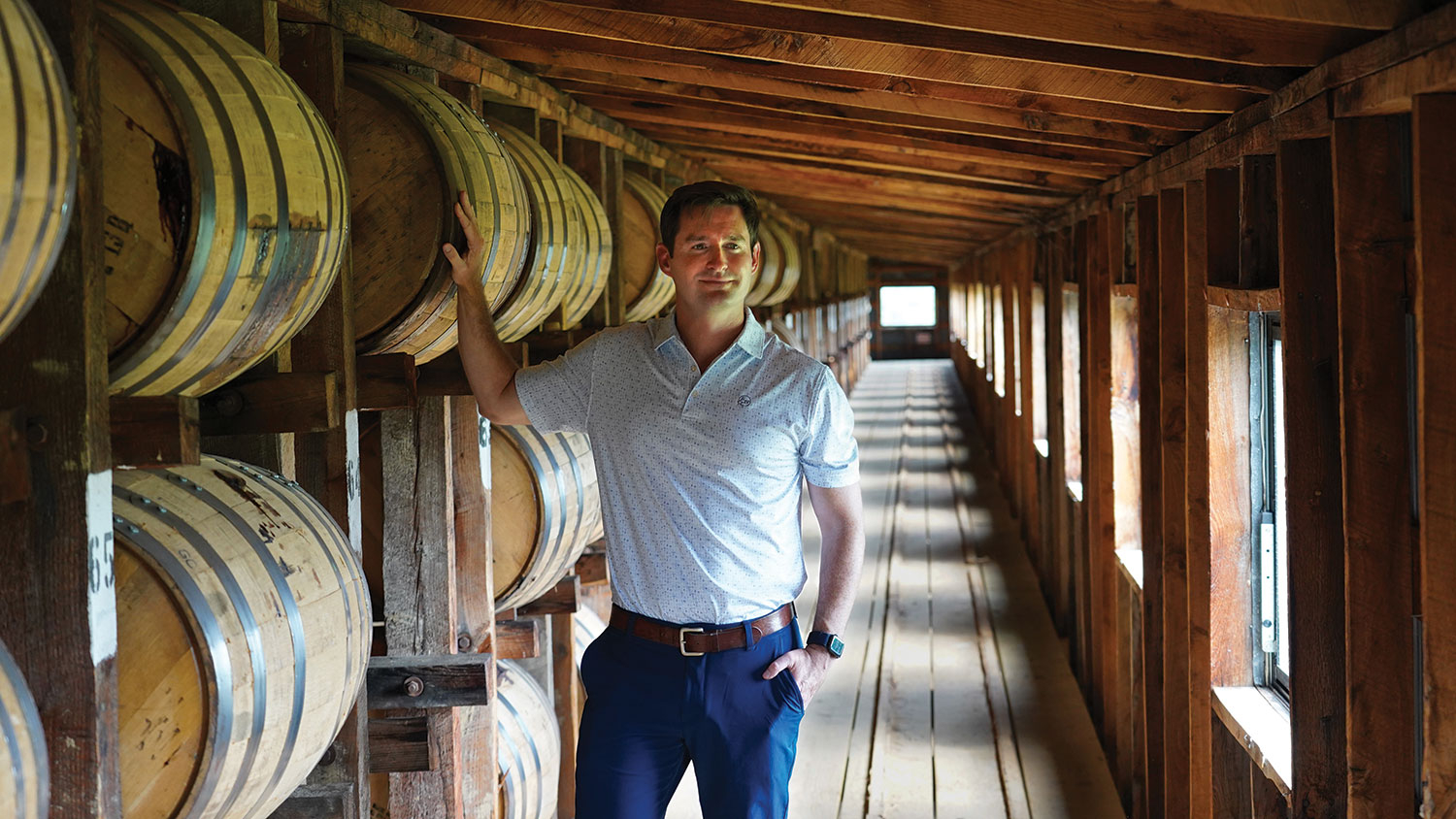For two years, two NC State alumni worked just one floor apart in the same building in Skopje, North Macedonia, completely unaware of each other. They not only had earned the same graduate degree but also worked in the same field.
On one floor sat Elmas Hasanovikj, a native of North Macedonia and staff member in the country’s ministry of defense. On the other was Daniel Mayeda, a European foreign area officer in the U.S. Army who works for the U.S. government in the office of defense cooperation in the U.S. Embassy in North Macedonia.
The strangers realized their Wolfpack connection last summer when providence intervened; bringing the two Master of International Studies graduates together and locking them in a lasting friendship.
The day started like any other. But during a chance conversation with local staffers at the U.S. Embassy, Hasanovikj learned that another North Carolina grad worked in the building. Taking the coincidence as a sign, Hasanovikj reached out to his former professors for clarity. They confirmed that Mayeda graduated from the MIS program in 2015, three years before Hasanovikj.
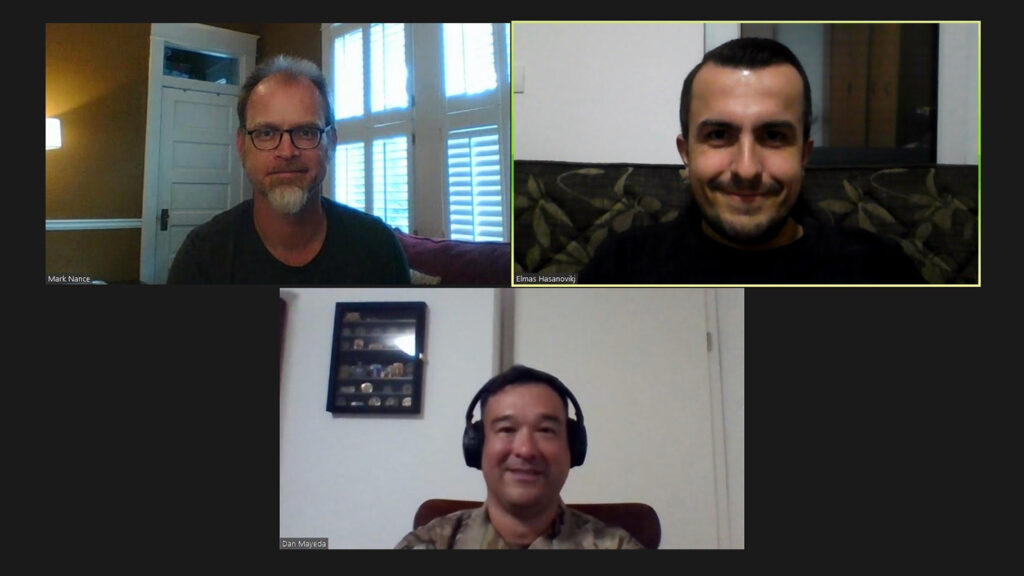
Hasanovikj texted Mayeda to arrange a meeting and the rest, as they say, is history.
They met on a hot August day in Mayeda‘s office, each expressing surprise about their situation, the smallness of the world and the marvel of destiny. The conversation quickly turned to NC State and the MIS program.
They chatted about the classes and professors they had, friends and experiences they made, and how much they enjoyed their time on campus and in Raleigh. They also discussed favorite hangouts and gathering places to study and play.
“I’m pretty sure we both commiserated about the difficulty of professor Mark Nance’s courses, or maybe that was just me,” Mayeda added.
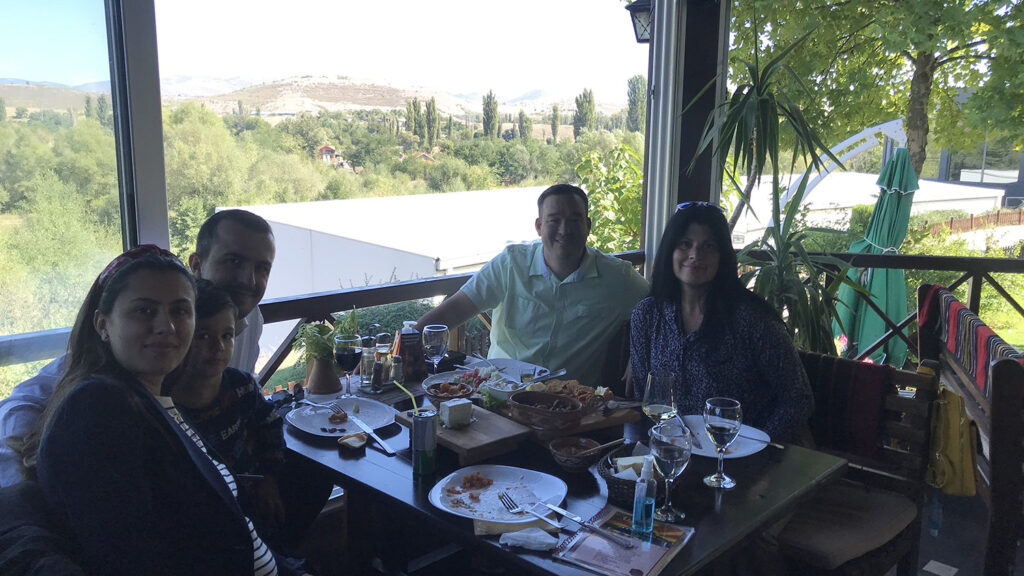
Today, the two alums continue to socialize inside and outside of work. They view their meeting as a unique chance to work with NC State’s MIS program to create opportunities for current students. They recently Zoomed with Nance to discuss the possibilities — from internships to research experiences.We caught up with Mayeda and Hasanovikj to learn more about their respective job responsibilities, NC State experiences, career advice and how they use their MIS degree to make a difference in international relations.
Daniel Mayeda
Daniel Mayeda serves as chief of the Office of Defense Cooperation. Since North Macedonia joined NATO last year, Mayeda’s focus has been on helping the country establish itself within the alliance as an active and ready member.
He attended NC State’s MIS program as part of his Army training. He graduated from the 36-credit program in one year, thanks to “the MIS faculty and staff who crafted a program that fit my schedule, but was also rigorous and geared toward my career,” he said.
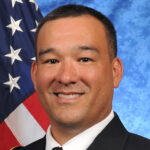
In a nutshell, what do you do?
I am responsible for all bilateral defense and security cooperation activities between the U.S. and North Macedonia. This includes planning and executing large-scale international exercises; coordinating DOD-funded humanitarian assistance; sending North Macedonia soldiers and civilians to U.S. military and defense schoolhouses; and foreign military sales.
What are the rewards and challenges of your job?
The greatest reward is the real-world impact my office’s activities have in this country – from seeing equipment we donated used on deployments in Afghanistan and Kosovo to U.S. units training shoulder-to-shoulder with North Macedonia soldiers.
This has been the best job of my 17-year Army career. It is the perfect combination of a ready and willing partner, an amazing and expert local staff, a supportive embassy, and a unique time in North Macedonia’s history.
The biggest challenge is how busy we are. As chief, that has forced me to take a critical look at our activities and ensure we prioritize those with the highest impact on accomplishing our goals.
What do you value most about your time at NC State?
I value the faculty, staff and student body. Every class was a challenge that pushed me out of my comfort zone and made me learn and adapt.
What skills did you learn at NC State that you still use today?
My Russian Politics class and other Europe-focused courses helped develop my understanding of the region as I began my career. The program also improved my written and oral communication skills, helping me to craft arguments and convey information.
What’s next?
That’s the million-dollar question since I am going through the assignment process to find out where I’ll be moving next summer. I would love to serve in another embassy in the region, but those positions are hot commodities.
What advice would you give someone entering the field?
Put the knowledge and skills you learn into practice. Talk with people, eat their food, walk their history, understand their perspective and see how it influences yours. Who knows, you might stumble upon a fellow MIS alum when you least expect it.
Elmas Hasanovikj
Elmas Hasanovikj is an advisor for defense policy at the Department for Defense Policy and Planning in North Macedonia’s Ministry of Defense. His department, in coordination with the Cabinet of the Minister and the General Staff of the Army, creates the ministry’s defense policy.
He attended NC State as a Fulbright graduate student. Along with his degree in international studies, he earned a graduate certificate in nuclear nonproliferation science and policy through the departments of political science and nuclear engineering.
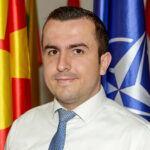
What are some of your primary responsibilities?
I assess North Macedonia’s defense system, and monitor and analyze the development of the political-security environment in the Euro-Atlantic area, as well as the synchronization of the national defense policy and planning with NATO’s defense planning process. My primary areas of responsibility are arms control, disarmament and nuclear nonproliferation policy analysis.
What is rewarding about your work?
It is rewarding contributing to the solution of real-life problems affecting national defense and, more importantly, working for the citizens of North Macedonia. It is an honor to serve my country!
I also thoroughly enjoy working with my coworkers in a collaborative, fast-paced atmosphere that encourages me to go to work every day. And my role affords me a bit of everything — from autonomy and creativity to exploring new ideas.
How do you use your degree?
The MIS program helped boost my academic knowledge and research skills to a higher level. During my studies, I improved my communication, critical thinking, problem-solving, constructive criticism and time management skills, which help me perform my daily tasks.
What do you value most about your time at NC State?
I value the time I spent at NC State with my classmates and professors. The courses and seminars were well structured and the professors were always accessible for consultation.
What I value most, however, are the friendships I made. I liked our gatherings before classes at the Global Village Organic Café and after classes at Mitch’s Tavern. On weekends, we would meet in downtown Raleigh. All my classmates were friendly and willing to teach me about American culture and society. Networking is what matters, as Daniel’s and my experience epitomizes.
What’s next?
I see myself representing my country at NATO, the UN, or OSCE (Organization for Security and Co-operation in Europe.) Later in my career, I would like to obtain a doctorate and eventually become a university professor.
What advice would you give someone entering the field?
Be persistent, study hard, never give up and use all available resources NC State offers to boost your knowledge, research and analytical skills. Work closely with your professors and follow their suggestions and advice.
This post was originally published in College of Humanities and Social Sciences.
- Categories:
